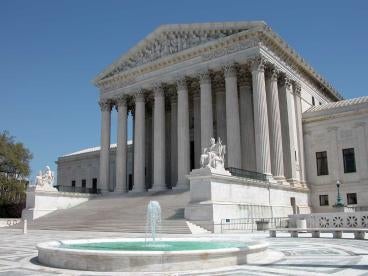It should come as no surprise to constitutionalists, practitioners under the Federal False Claims Act (31 U.S.C. §§3729–3733) (FCA), and auditors of the oral argument in the case that the Supreme Court has held that the federal government may move to dismiss an FCA action under §3730(c)(2)(A) whenever it has intervened—whether during the seal period or later on. United States ex rel. Polansky v. Executive Health Resources, Inc. To assert this right, the government must actually intervene (which is not difficult since the statute allows it at any time before final judgment, even on appeal), and the propriety of dismissal is to be adjudicated pursuant to Fed. R. Civ. P. 41(a), the rule generally governing voluntary dismissal of suits in ordinary civil litigation, and dismissal should be granted in all but the most extraordinary cases.
What might surprise some is the fact that the decision was not unanimous and that the lone dissenter was Justice Thomas, who, just a few weeks earlier, wrote the Court’s opinion in United States ex rel. Schutte v. Supervalu Inc., holding that FCA’s scienter element refers to a defendant’s subjective belief as to the falsity of a claim, not what an objectively reasonable person might believe. It may just be that Justice Thomas is less-pro government than he is pro-relator.
In her usual pithy style, Justice Kagan, writing for the eight-Justice majority, begins by rehearsing that the FCA, which imposes civil liability on any person who presents false or fraudulent claims for payment to the federal government, has the unusual feature of authorizing private parties (known as relators) to sue on the government’s behalf and to obtain a share of any recovery. However, these qui tam actions are “brought in the name of the Government,” and the injury they assert is to the government alone. As I have written in this blog and elsewhere many times before, the government is the party in interest, and the qui tam relator is no more than the functional assignee of its claim. Indeed, that is why the FCA does not offend the Constitution.
When a relator files an FCA action, the government has at least 60 days (often extended for “good cause”) to decide whether to “intervene and proceed with the action.” §§3730(b)(2)–(3). If the government passes on intervention, it remains a “real party in interest” and can intervene after the seal period ends, so long as it shows good cause to do so. And that is what happened in this case. This activated a provision of the FCA empowering the government to “dismiss the action notwithstanding the objections of the [relator],” so long as the relator received notice and an opportunity for a hearing. The District Court granted the request, finding that the government had thoroughly investigated the costs and benefits and come to a valid conclusion.
The holding that the government’s dismissal right is not limited to the seal period reflects an argument that originated years ago when I was the Assistant Attorney General for the Justice Department’s Civil Division, the component charged with oversight of FCA litigation. Justice Kagan’s view that the text of the FCA is clear on the point that in amending the FCA to its current format, Congress knew that changing circumstances and newly discovered information mandates that the government always may step in to protect its interests and reassess litigation without having to defer to its assignee.
Besides the Polansky qui tam case, a unanimous Court, per Justice Jackson, held in Lora v. United States that the bar on concurrent sentences covered by 18 U.S.C. 924(c) doesn’t extend to a sentence imposed under a different subsection of the penal code. This was an easy case of textual analysis, parsing what Congress included, and didn’t, in a maze of statutory subsections. Justice Kagan’s later-equivocated announcement that “we are all textualists now” may not apply every day, but it does today.




 i
i


